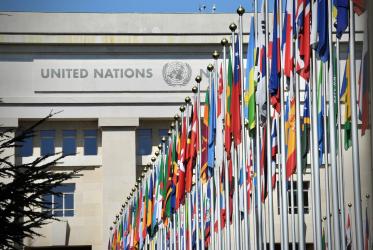Measures implemented by the Philippine government in regard to extrajudicial killings in the country will not prevent these, affirmed the World Council of Churches (WCC) at the UN Human Rights Council's 6th session held in Geneva from 10-28 September 2007.
On 24 September, the WCC together with the Asia Pacific Forum on Women Law and Development, the Asian Human Rights Commission and the Unrepresented Nations and Peoples Organization submitted a joint oral intervention stating that the Philippine government's measures "did not and will not resolve the [extrajudicial] killings".
From January to July 2007, there were 60 extrajudicial executions, and from January to June there were 17 cases of disappearances, 12 cases of torture, 113 cases of illegal arrests and thousands became victims of forced evacuation. Nearly 900 people have been victims of extrajudicial executions in the Philippines since 2001.
According to the joint oral intervention, which quotes a report of the UN special rapporteur Philip Alston, the government's measures don't address the fact that the killings are encouraged or facilitated by certain aspects of its own counter-insurgency strategy. In addition to that, most groups on the left of the political spectrum are labeled as "guilty by association" and therefore seen as legitimate targets.
The oral intervention beseeched the Human Rights Council to "prevail upon the Philippine government to make good its commitments in the pledges it made to the [UN] general assembly" when it sought reelection to Council last May.
Full text of the oral intervention







